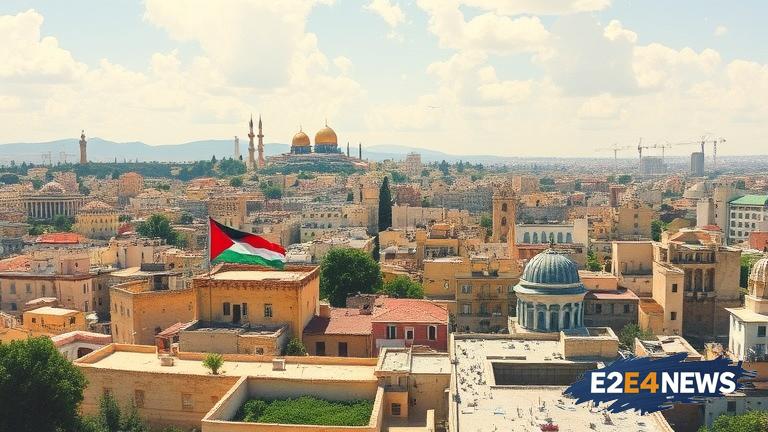The relationship between Palestine and the West is a complex and multifaceted one, influenced by a myriad of historical, cultural, and political factors. For decades, the Israeli-Palestinian conflict has been a focal point of international attention, with the West often playing a significant role in shaping the narrative and influencing the outcome. However, the Western perspective on Palestine is not monolithic, and there are varying degrees of understanding, empathy, and support for the Palestinian cause across different countries and communities. Historically, the West has been instrumental in the creation and perpetuation of the Israeli-Palestinian conflict, with the 1917 Balfour Declaration being a pivotal moment in this regard. This declaration, issued by the British government, expressed support for the establishment of a Jewish homeland in Palestine, which was then under Ottoman rule. The aftermath of World War II and the Holocaust further solidified Western support for the creation of Israel, which was formally established in 1948. Since then, the conflict has evolved, with periods of relative calm punctuated by outbreaks of violence and ongoing disputes over issues such as settlements, borders, and the right of return for Palestinian refugees. The Western media’s coverage of the conflict has been criticized for often presenting a biased view, favoring the Israeli narrative over the Palestinian one. This has contributed to a lack of understanding and empathy for the Palestinian cause among Western audiences. However, there are also strong voices of support for Palestine within the West, including advocacy groups, academic institutions, and certain political movements. These entities work to raise awareness about the situation in Palestine, challenge dominant narratives, and push for policies that support Palestinian rights and self-determination. The role of the United States has been particularly significant in the conflict, given its strong alliance with Israel and its position as a global superpower. U.S. foreign policy has often been criticized for being overly supportive of Israel, with some arguing that this has hindered the peace process and exacerbated the conflict. In contrast, European countries have taken a more nuanced approach, with some, like Ireland and Sweden, being more vocal in their support for Palestinian rights. The European Union has also been a significant player, providing financial aid to Palestine and advocating for a two-state solution. Despite these efforts, the conflict remains unresolved, with both sides dug in and the international community struggling to find a lasting solution. The parallax view, or the phenomenon where the same object appears differently when viewed from different angles, is particularly apt when describing the perceptions of Palestine and the West. Depending on one’s perspective, the conflict can be seen as a struggle for self-determination, a clash of civilizations, or a complex web of historical and political factors. Understanding these different perspectives is crucial for developing empathy and working towards a resolution. Furthermore, the digital age has opened up new avenues for Palestinians to tell their stories and for Western audiences to engage with the conflict in a more direct way. Social media platforms, documentaries, and literary works have all played a role in humanizing the Palestinian experience and challenging dominant narratives. However, this increased visibility has also led to backlash, with some accusing proponents of Palestinian rights of anti-Semitism or promoting terrorism. The accusation of anti-Semitism is particularly contentious, as it often conflates criticism of Israeli policies with hatred for the Jewish people. This conflation has been used to silence voices of dissent and undermine solidarity movements. In reality, the distinction between anti-Zionism and anti-Semitism is crucial, as the former critiques a political ideology while the latter targets a religious and ethnic group. The future of the Israeli-Palestinian conflict is uncertain, with some hoping for a renewed peace process and others fearing further escalation. The role of the West will be pivotal in this regard, as its political, economic, and cultural influence can either hinder or help the path towards resolution. Ultimately, a deeper understanding of the complex historical, cultural, and political factors at play, coupled with a commitment to empathy and justice, is necessary for moving forward. This includes recognizing the rights and narratives of both Israelis and Palestinians, and working towards a solution that respects the dignity and self-determination of all parties involved. The parallax view reminds us that perception is everything, and that by considering multiple viewpoints, we can work towards a more comprehensive understanding of the conflict and its possible resolutions.





